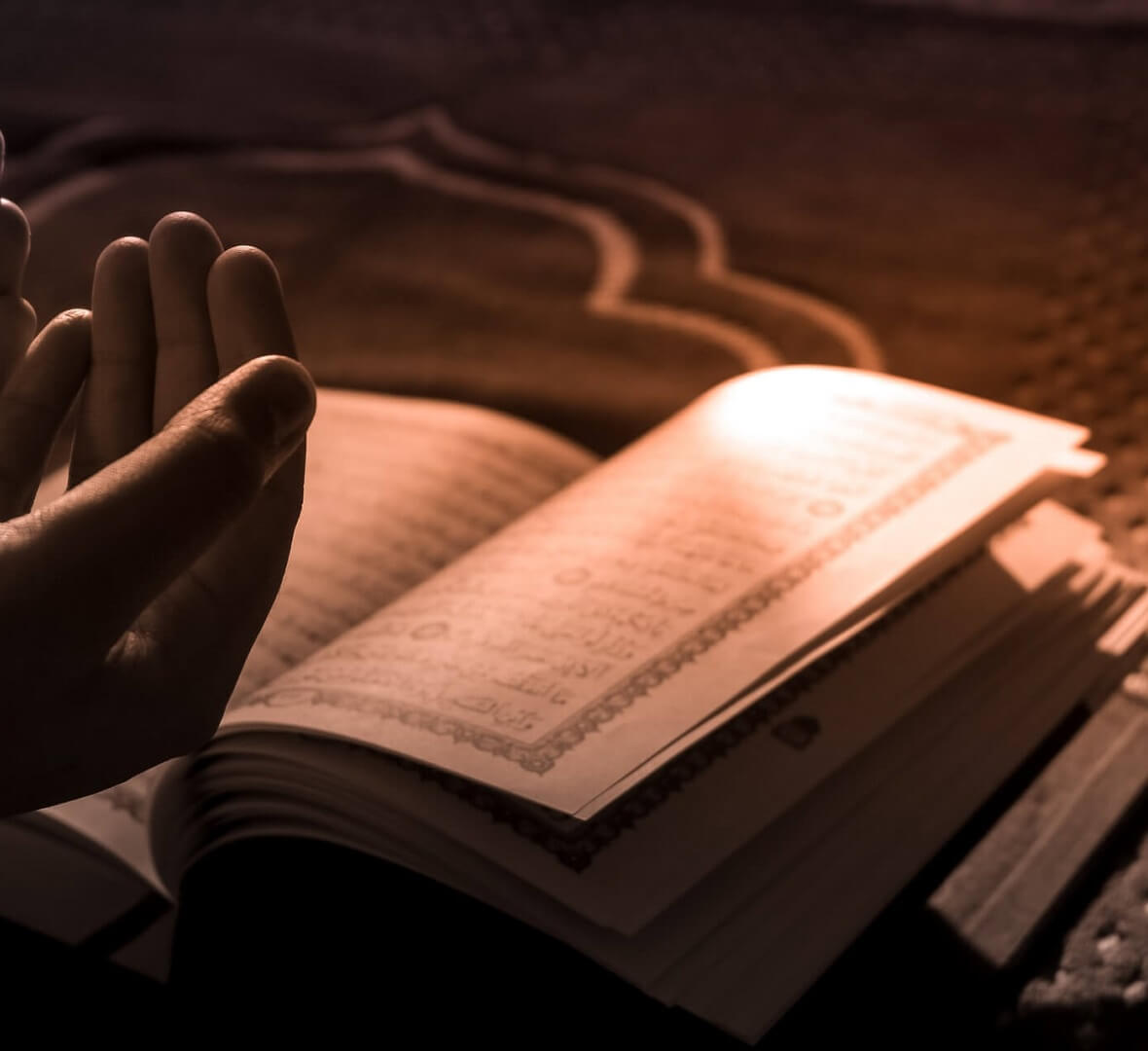When Allah SWT sent us the Prophet Muhammad (PBUH), He didn’t just ask him to deliver the Qur’an to us, but to explain it to us and teach it to us.
Allah SWT said in chapter 16:44 (With clear arguments and scriptures; and We have revealed to you the Reminder that you may explain to men what has been revealed to them, and that haply they may reflect.)
He also gave him the knowledge to be a judge and a ruler of the Muslim Umma.
Allah SWT said in chapter 4:105 (Surely, We have sent down to you the Book with the truth, so that you will rule between the people by that Allah has shown you.)
And to set him as an example for us to follow.
Allah SWT said in chapter 33:21 (Certainly, you have an excellent example in the Messenger of Allâh for one who looks forward [with hope and awe] to Allâh and the Last Day and who remembers Allâh again and again.)
From these verses, we can understand that the knowledge Allah SWT gave to the prophet (PBUH) is not just the Qu’ran. Which was explained in the Hadith narrated by Al-Miqdam ibn Ma’dikarib: The Prophet (PBUH) said:
(Beware! I have been given the Qur’an and something like it, yet the time is coming when a man replete on his couch will say: Keep to the Qur’an; what you find in it to be permissible treat as permissible, and what you find in it to be prohibited treat as p0rohibited.’ But what God’s messenger has prohibited is like what God has prohibited.) [Abu Dawud transmitted it, and Darimi transmitted something similar]
It was narrated by Abu Hurairah that the prophet Muhammad (PBUH) said: (I have left amongst you two matters, you will never go astray as long as you hold onto them, the Book of Allah and my Sunnah.) [Al Tamhid of Ibn ‘Abdul Barr vol. 6 pg. 451 under the chapter Balaghiyyat.].
In this Hadith, we can understand the importance of following the Sunnah, which is simply anything the prophet did, taught, or approved in his lifetime.
And as mentioned in verse 21 from chapter 33 following Sunnah can help us to reach a higher place in Jannah and can get us closer to Allah. It’s not an obligation for most of it, but those who follow it will be highly rewarded.
Sunnah can be a Dua’a you make before you sleep, or when you travel or saying bism’Allah (by the name of Allah) before you eat or before you enter your home, or a prayer you make when you enter a Masjid, it could be a way of walking, or drinking (drinking while you’re sitting), or saluting your neighbors and friends by the saying Assalam alikom.
Sunnah is taken from Hadiths which were delivered to us by the Sahaba who recorded everything the prophet said or done, even the brief moment of silence in prayers before ruku (kneeling), and collected by scholars who came after them.
Unfortunately, nowadays there are some people who try to dismiss the Sunnah by rejecting the Hadith by saying we only follow the Quran, just as the prophet warned us in this Hadith.
But if they try to read the Qur’an and try to understand it they will see that Allah ordered us to follow the prophet and his Sunnah in many verses of the Qur’an.
Importance of Following the Sunnah
Here are some verses where Allah ordered us to follow the Prophet (PBUH) as much as we should follow the Qur’an:
- Chapter 4:64 (We did not send a Messenger except that he should be obeyed, by the permission of Allah.)
- Chapter 4:65 (But no, by your Lord! they are no believers at all unless they refer all their disputes (that arise between them) to you for judgment, then they do not find any demur in their minds about the propriety of your judgment, and they submit (to your decisions) with entire submission.)
- Chapter 4:80 (Whosoever obeys the Messenger, indeed he has obeyed Allah. As for those who turn away, We have not sent you to be their protector.)
- Chapter 24:54 (Say: ‘Obey Allah and obey the Messenger. If you turn away, upon him only rests what is laid upon him, and upon you rests what is laid on you. If you obey him, you shall be guided. It is only for Messenger to deliver a clear message.)
- Allah said in chapter 53:2-5 ( Your Companion is neither astray nor being misled. (2) and neither does he speak out of his own desire (3) It is but a revelation that is revealed, to him, (4) He was taught by one Mighty in Power).
The most important things that we can understand from these verses are the following:
- The prophet was sent to be obeyed.
- Obeying Allah can only be achieved by obeying His Prophet.
- Allah will only guide those who follow the Prophet.
- The Sunnah of Prophet Muhammad (PBUH) is a part of the revelation.
- Not everyone will follow the Prophet and those who don’t will be judged for their actions.
Now we saw what the Qur’an said about following the Sunnah of the Prophet Muhammad (PBUH) and how important is to obey him, we will see together why should we trust Hadith.
There are many reasons to trust Hadith, one and the most important thing is the chain of narration which we call (Sanad), which is the same way the Quran was brought to us by the Sahaba and those who came after them.
There are actually books written about the people of the chain of narrations where you can find anything that is need to be known about them, like name, father’s name, place of domicile, the teachers of that person, plus other information like is he a trustworthy, a known scholar, or a knowledgeable person of Hadith, and based on this information the Hadith can be graded to authentic, Hasan (good), Da’if (weak) or Mak’thoub (a lie).
Scholars took great care of preserving the Hadith’s narrations, which is why the terms they use are too specific, like Haddathana, Ak’barana both of them can mean told us, but Haddathana is very specific meaning he told us himself, while Ak’barana can be even in form of writing, and if you read the books of Hadith you will find many other examples shows how careful scholars were in collecting Hadiths.
Another reason is the fact that there are many narrations for the same Hadith, meaning you find in the books of Hadith the same Hadith narrated many times, sometimes up to a hundred times, which proves the authenticity of Hadith.
Knowing that we should take good care of the Sunnah of the Prophet (PBUH) and try to follow as much from it as we can.
Benefits of Following The Sunnah
The benefits of following the Sunnah are incalculable, there are actually many books written for that, in this article we will see some Hadith that can give us a glimpse of what kind of reward is waiting for us in this life and when we meet our creator:
1. Narrated Anas ibn Malik: The Prophet (ﷺ) said: When a man goes out of his house and says: “In the name of Allah, I trust in Allah; there is no might and no power but in Allah,” the following will be said to him at that time: “You are guided, defended and protected.” The devils will go far from him and another devil will say: How can you deal with a man who has been guided, defended and protected? [Sunan Abi Dawud]
2. Abu Hurairah (RA) reported: The Messenger of Allah (PBUH) said, “There are two statements that are light for the tongue to remember, heavy in the Scales and are dear to the Merciful: ‘Subhan-Allahi wa bihamdihi, Subhan-Allahil-Azim [Glory be to Allah and His is the praise, (and) Allah, the Greatest is free from imperfection]’.” [Al-Bukhari and Muslim].
3. Aishah (RA) reported: The Prophet (PBUH) said, “The two Rak’ah before the dawn (Fajr) prayer are better than this world and all it contains.” [Muslim]
4. Abu Hurairah (RA) reported: that the Messenger of Allah (PBUH) said, “Allah the Exalted has said: ‘I will declare war against him who shows hostility to a pious worshipper of Mine. And the most beloved thing with which My slave comes nearer to Me is what I have enjoined upon him, and My slave keeps on coming closer to Me through performing Nawafil (prayer or doing extra deeds besides what is obligatory) till I love him. When I love him I become his hearing with which he hears, his seeing with which he sees, his hand with which he strikes, and his leg with which he walks; and if he asks (something) from Me, I give him, and if he asks My Protection (refuge), I protect him”. [Al- Bukhari].


